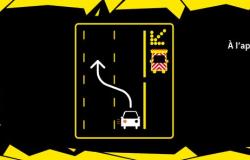“In France, ADHD suffers from a significant delay in diagnosis with an average age around 9-10 years old”, recalled Social Security in 2023.
However, there is no lower age limit for diagnosing attention deficit hyperactivity disorder (ADHD), the symptoms of which can appear very early. The High Authority for Health (HAS) is publishing new recommendations this Monday, September 23, in order to better diagnose and manage this disorder.
What is ADHD?
Attention deficit disorder with or without hyperactivity is one of the neurodevelopmental disorders, characterized by symptoms of inattention, accompanied or not by symptoms of hyperactivity and impulsivity, of intensity inappropriate to the situation and the child’s age.
“ADHD can present forms with predominant inattention or in which hyperactivity and impulsivity predominate, but the most common form in the clinical population is the combined form, combining the three types of symptoms in children,” explains the HAS.
This is true in boys, who are twice as likely to be affected by this disorder as girls, but the disorder could be largely underdiagnosed. In fact, the symptoms are more difficult for them to perceive, the inattentive form being the most common.
Too few trained professionals
While 5% of children and adolescents, and 3% of adults, worldwide suffer from ADHD, diagnosis and access to care remain complex.
The diagnosis is based only on clinical examination and the collection of information from the child’s relatives; no other examination is useful. Associated disorders and comorbidities make the process complex. Above all, points out the HAS, professionals caring for children are still too few in number and poorly distributed across the territory.
A heavy impact on daily life
However, the impact of ADHD is harmful on an academic, social and family level and better care has long been awaited by families.
ADHD is also associated with poor self-esteem, loss of academic luck and chaotic school careers, psychiatric and addictive disorders and risky behaviors. Sexually transmitted diseases, early parenthood, suicide, risk of criminal activity, antisocial personality disorder are also associated.
A diagnostic delay can lead to a worsening of the psychological, academic and social consequences of ADHD as well as associated disorders.
As a reminder, only pediatricians, psychiatrists and child neurologists are authorized to diagnose and initiate treatment. “With the aim of expanding the healthcare offering in the region, the HAS is now calling on the public authorities to extend these skills to other doctors (general practitioners in particular): the latter will then follow structured and qualifying training, in conjunction with the national professional colleges concerned. recommends the health authority.
What is the recommended support?
ADHD is a chronic illness. There is no treatment to cure it but to reduce the symptoms. First-line treatment consists of non-drug interventions. Psychoeducation must be systematically offered to the child and his family: it involves knowing and understanding the difficulties of ADHD in order to choose the different intervention options and adhere to them.
5% of children suffer from attention deficit disorder with hyperactivity or hyperactivity worldwide. This is a fairly common disorder which remains poorly diagnosed and treated in France. However, the delay in diagnosis can worsen the deleterious impact of ADHD on the daily life of patients.
Parenting skills training programs (PEHP) are also recommended. These are programs for parents to support them in therapeutic groups in their role as daily educators. HAS calls for the development of these groups, which are still too few in number in the region.
Behavioral, cognitive and emotional therapies can also be considered. At school, support must be systematic and accommodation may be offered
In addition to these actions, medication treatment may be prescribed depending on the severity of the ADHD. For these forms of severe intensity, the HAS recommends that it be possible to start treatment with methylphenidate (MPH) quickly after the implementation of psychoeducation, so as not to delay the effectiveness of the therapeutic process.
The HyperSupers ADHD France association, which contacted the HAS, reacted after the publication of these recommendations: “For people with ADHD this means that we now have references on the diagnostic process, so that from Lille to Marseille via Brest and Strasbourg, the diagnosis of your child is considered using the same procedure. We will need to train a large number of health professionals to meet the needs of ADHD people and organize the care pathway for children as well as adults and be attentive to the transition of care from child to adult.”






